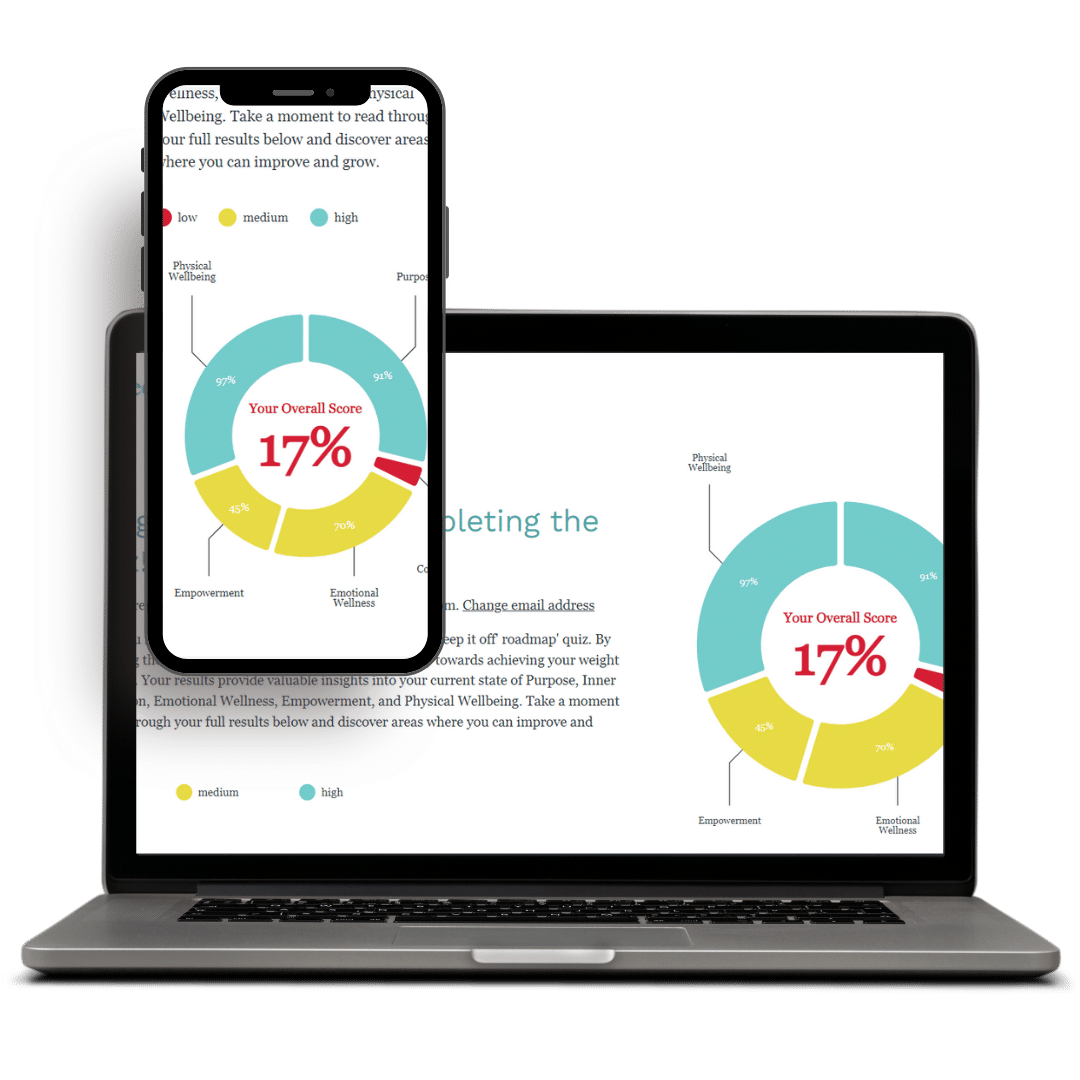Your Brains Guide to Emotional Eating
Why We Do It and What To Do About It
10-MINUTE READ
It nourishes us, it’s delicious, and most importantly, it keeps us alive.
This is one of the reasons why a healthy relationship with food is so important. However, in today’s toxic diet culture, many normal food habits are demonised. If you’ve read the Awaecnan blog before, you’ll know that we’re dispelling the common myths about weight and diet that have been created by this culture.
If this is your first time here, welcome!
This article will be exploring all things emotional eating and answer questions that you may have about it. Let’s start at the beginning.
What is emotional eating?
Emotional eating is when a person uses food or eating as a coping mechanism or self-soothing as a way to manage the negative emotions they are experiencing. This could be during times of stress, sadness, loneliness, or even boredom. This habit doesn’t need to be triggered by a major life event. In fact, everyday stress, pressure, and hassle can cause people to eat emotionally.
Is emotional eating normal?
Emotional eating can be a perfectly normal habit and our mind creates habits naturally. When we experience emotional distress, we seek comfort and relief through things that make us feel better. Some of us use music to cheer ourselves, others turn to exercise or a conversation with a loved one. We all have different methods for coping and eating is very reasonable.
When you consider all this, it’s easy to understand why many of us go to food as a source of comfort. From a neurological perspective, when we eat food, our brain releases endorphins. These hormones are part of the reward system in our brains and make us feel good.
So, what is happening here? We don’t feel good, and we look for something that will make us feel better; food. This is why emotional eating can be completely normal.
Why is emotional eating big in diet culture?
Diet culture loves to zero in on normal habits and behaviours to create a problem and therefore offer a solution and monetise the solution. Diet culture labels habits based on whether they could be perceived as a problem, especially when it comes to ideas of ‘size’.
The idea that is perpetuated is that if you’re a certain size, you should be avoiding eating unnecessarily. Emotional eating falls outside of the eating habits that diet culture deems ‘ok’ because it’s often spontaneous and may involve foods that aren’t the healthiest.
The problem is that dieting in the first place often leads to emotional eating. Diets are forms of restriction on food and don’t allow you to have the food that you enjoy the most.
During good times, ignoring your cravings is easier. However, when you’re not feeling great, your cravings for something that you know will make you feel better increase, causing you to eat the foods that you’ve avoided but with guilt and shame attached.
When is emotional eating a problem and when is it normal?
A healthy diet is all about moderation. This means eating the foods that you enjoy without overindulging uncontrollably or judging yourself if you emotionally eat or have uncontrollable urges. Emotional eating becomes a problem for you when you feel like it’s a problem, which can be harder to judge in the toxic diet culture world.
Generally, be your own best judge on what feels natural and normal to you. For example, If you emotionally eat sometimes and don’t often overindulge, or maybe when it’s at times when you’re happy and the food is super delicious or you’re engaged at the moment enjoying friends rather than watching what you’re eating this all feel natural and normal.
When is emotional eating an eating disorder?
Eating disorders are complicated and very personal. This is why if you’re concerned about your emotional eating, the best that you can do is to speak to a therapist who can offer a formal diagnosis.
The thing to keep an eye out for is what is known as eating episodes. These are periods when you eat emotionally. If these episodes are becoming longer, more frequent, and/or you start to consume amounts of “junk” or “comfort” food, you want to change but can’t, these are the signs that your emotional eating may be turning into disordered eating.
How can I recognise what a healthy amount of emotional eating is and when to seek help?
If you’re concerned about your emotional eating, you’re likely wondering when you need to seek help. As we’ve touched on, the key factor is eating episodes. Take note of your eating episodes and ask yourself the following questions:
- How often do they occur?
- What do you eat and how much do you eat during these windows?
- Are these episodes affecting you physically and or emotionally?
- What is causing these episodes?
- What emotions are you experiencing when they occur?
- Are your episodes increasing in frequency?
Keeping these questions in mind will help you to keep a better track of your behaviour and identify when you may need help.

Discover Your Weight and Wellness Score
…and discover the key to lasting wellness.
The Keep it Off Scorecard benchmarks your ability to make lasting changes, lose weight naturally and keep it off. If you to love your life, love who you are at your core and love food again, this tool will identify your baseline.
Take this scorecard and find out how ready you are to Keep It Off – and receive a report that’ll tell you what to work on to make it happen.
5 Steps to Stop Emotional Eating Today
1. Create awareness: Your first step is to create awareness around why you are emotionally eating and the easiest way to do that is to keep a food diary: A food diary is used to track why you eat on a given day. It isn’t meant to make you feel judged. Instead, it’s meant to help you to notice patterns so you can make changes if you need to. You can keep your food diary in a notebook or on your phone – whatever is easiest for you.
2. Break the cycle: What often occurs with emotional eaters is a cycle. It starts with a negative feeling, which leads to eating, which causes you to feel bad about eating, which may lead you to eat again and the cycle repeats. Being able to break the cycle at one of these steps will help you to reduce your emotional eating and remove some of the negative feelings that you have towards this habit.
3. Hypnosis/hypnotherapy: Hypnosis is an effective method for stopping emotional eating because it gets to the root cause of the issue. It helps you to break patterns on a deeper level which can lead to great results. Hypnosis is a proven treatment that has also been used for other habit-driven behaviours such as binge eating or creating automatic habits around healthy food and exercise.
4. Find other ways to feed your emotions: We all experience negative emotions and bad days. What matters is how we deal with them. If you feel your eating is becoming a problem, you might want to consider swapping emotional eating with another way to cope.
Perhaps there is a hobby you can undertake to help with your mood? Moving the body is another great way to cope with stress. If you need something that you can do at any time why not consider meditation or hypnosis? Explore different options and find one that best suits you
5. Get help: Emotional eating and the underlying reason why we have a negative relationship with food and ourselves is our specialty. If you are ready to make a change speak to one of our Hypnotherapists to find out how we can help.
Try these free resources created specifically to help with emotional eating
So, to set the record straight, emotional eating isn’t always a bad thing. Diet culture has proven to be incredibly toxic for women. It may cause us to feel shame or guilt for normal human behaviour.
It’s important, to be honest with yourself, and understand why you are emotional eating in the first place then go about tackling it from the root cause. Don’t be afraid to seek help and know that you aren’t alone.
MINDSET

Ultimate Guide to Weight Loss for the Time Poor
10-MINUTE...
WEIGHT LOSS HYPNOTHERAPY

Resist Eating Chocolate Hypnosis
Hypnotherapy Session...
NUTRITION

Moist and Light Flourless Carrot Cake
Moist and Light...



